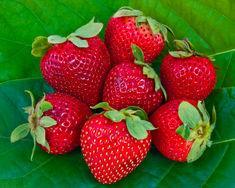
Four scientists at East Malling Research have flown out to the Far East to give lectures at the seventh International Strawberry Symposium.
Dr David Simpson, Professor Xiangming Xu, Adam Whitehouse and Abi Johnson will all deliver presentations during the international five-day conference, held in Beijing, China.
The strawberry symposium, held every four years, provides a meeting point for the industry’s leading researchers and academics as well as international and domestic producers.
Dr Simpson said his team was looking to contribute to the symposium’s theme of Green, Freshness, Health and Development.
The scientist, who has been researching strawberry breeding at East Malling since 1983, said: “We’re really looking forward to the symposium as it will give us the opportunity to make new contacts from across the globe and also present EMR’s exciting results and findings to strawberry producers and scientists from many countries.
“Xiangming will explain how we are developing models to predict risk of grey mould infection while Adam will speak about breeding strawberries for the 60-day cropping system.
"Abi is set to deliver a lecture on the genetics of water use efficiency in strawberries and I will provide an overview of current breeding research at East Malling and across North WestEurope.”
Scientists at East Malling Research have led the way in breeding new varieties of strawberry, releasing over 20 new types since 1984, each designed to meet the needs of the growers in terms of yield, fruit quality,time of harvest and disease resistance.
EMR's studies have also addressed the environmental impact of growing strawberries.
In 2009, EMR scientists tackled water use issues, demonstrating that it was possible experimentally to reduce consumption down from the industry average of 60,000 litres per tonne of fruit to just 10,000 litres, while still maintaining commercial yields and growing sweeter berries.
They developed a way of ‘tricking’ the plant into thinking it is growing in dry soil. As a result, the roots send hormone signals to the shoot telling them to reduce leaf growth and therefore water use, and put more resources into the developing fruit.
The team are also developing varieties of strawberry that are better able to cope with the predicted effects of climate change, particularly higher summer temperatures and lower rainfall.
The seventh International Strawberry Symposium takes place from Saturday, February 18 to Wednesday 22.



